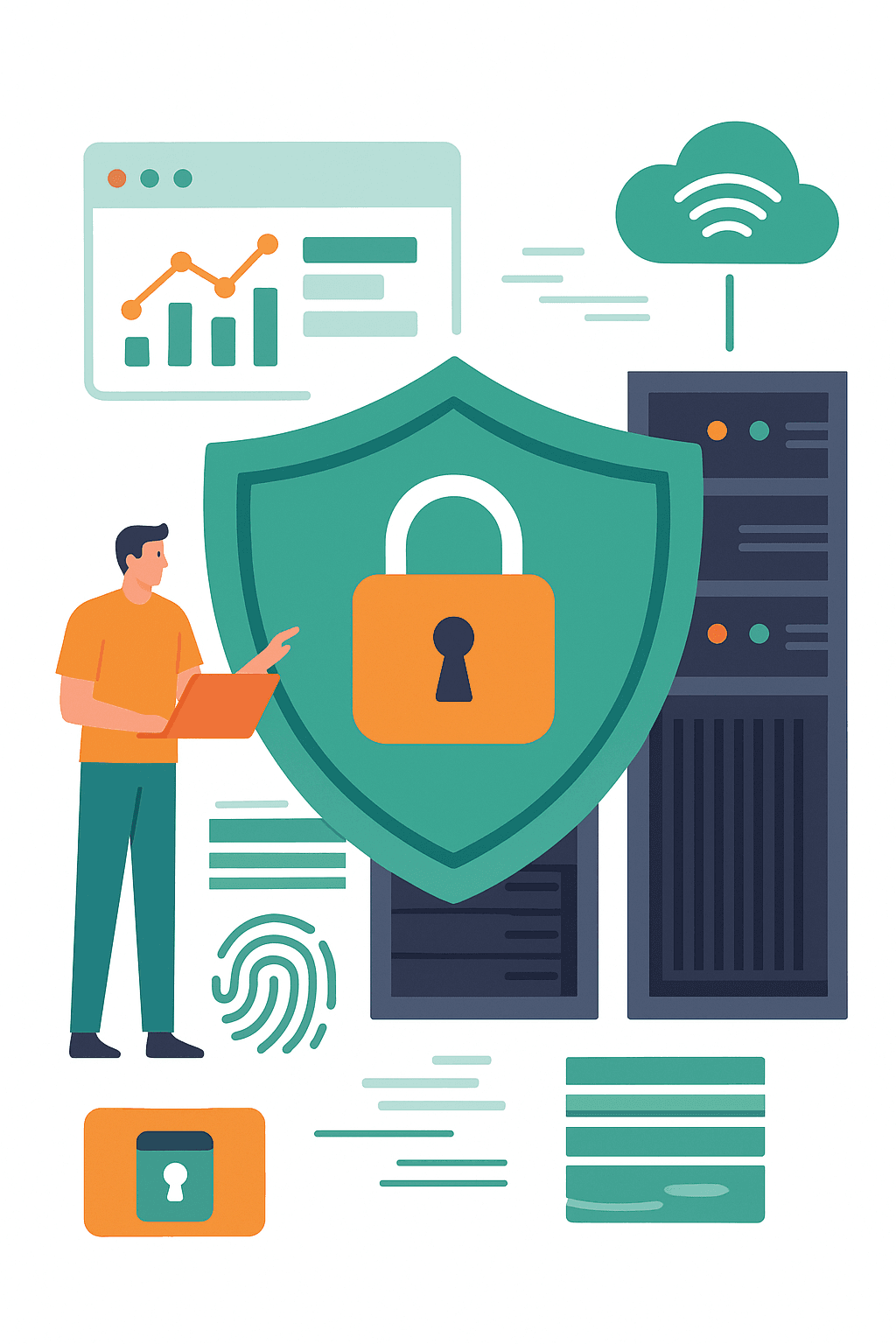Achieve Cybersecurity Compliance for Your Organisation
Ensuring your organisation meets cybersecurity compliance requirements is essential for protecting sensitive data and reducing risks. We provide tailored solutions to help you achieve government Cyber Security Essentials certification and PCI DSS security compliance. Our approach simplifies the process, equipping you with the necessary tools and guidance to secure your business and meet industry standards.
Enhancing Cybersecurity Compliance
We help organisations enhance their cybersecurity by implementing the five key technical controls of Cyber Essentials.
✔ Secure Configuration - we ensure your systems are set up securely to minimise vulnerabilities and reduce potential entry points for cyber threats.
✔ User Access Control - our solutions help you manage user permissions effectively, ensuring only authorised personnel can access sensitive data and services.
✔ Malware Protection - we implement advanced security measures to detect and neutralise malicious software before it can compromise your systems.
✔ Security Update Management - our team ensures your software is regularly updated to eliminate vulnerabilities and protect against cyberattacks.
✔ Firewalls - we configure robust firewalls to create a security barrier between your network and external threats.
💡By partnering with us, you can achieve Cyber Essentials compliance and strengthen your organisation’s cybersecurity posture.
Contact Us
Frequently Asked Questions About IT and Cyber Security
Here are some frequently asked questions related to IT and cyber security. If you need more information or have other inquiries, don’t hesitate to get in touch—we’re here to support you.
Cyber security involves protecting computer systems, networks, and data from cyber threats such as hacking, phishing, and malware. It’s crucial for safeguarding sensitive information and ensuring the smooth operation of IT infrastructure.
Implementing robust security measures like firewalls, encryption, secure passwords, regular software updates, and employee training are essential for defending your business from cyber risks.
MFA is a security process that requires users to provide two or more verification factors to gain access to a system, making it harder for cyber criminals to breach your accounts.
Regular updates are vital. Security patches and software updates should be applied as soon as they are released to protect against known vulnerabilities.
Ransomware is a type of malware that locks your data or systems and demands payment to restore access. Protect yourself by keeping software up to date, using reliable antivirus software, and educating employees on safe online practices.
If you suspect a breach, immediately disconnect affected systems from the network, inform your IT team, and begin investigating the scope of the breach. Contacting a cyber security professional is also recommended.
Data encryption converts data into a code to prevent unauthorized access. Even if data is intercepted, it remains unreadable without the decryption key, adding an extra layer of protection.
Phishing is a method used by cybercriminals to trick individuals into revealing sensitive information like usernames, passwords, or financial details. Be cautious of unsolicited emails or messages, and verify the sender before clicking on links or downloading attachments.
Regular security audits, employee awareness training, implementing strong access controls, and maintaining up-to-date backups are key steps to improving IT security.
Immediately change your passwords and monitor your accounts for suspicious activity. You may also want to report the breach to relevant authorities, such as your bank or identity theft protection services.
